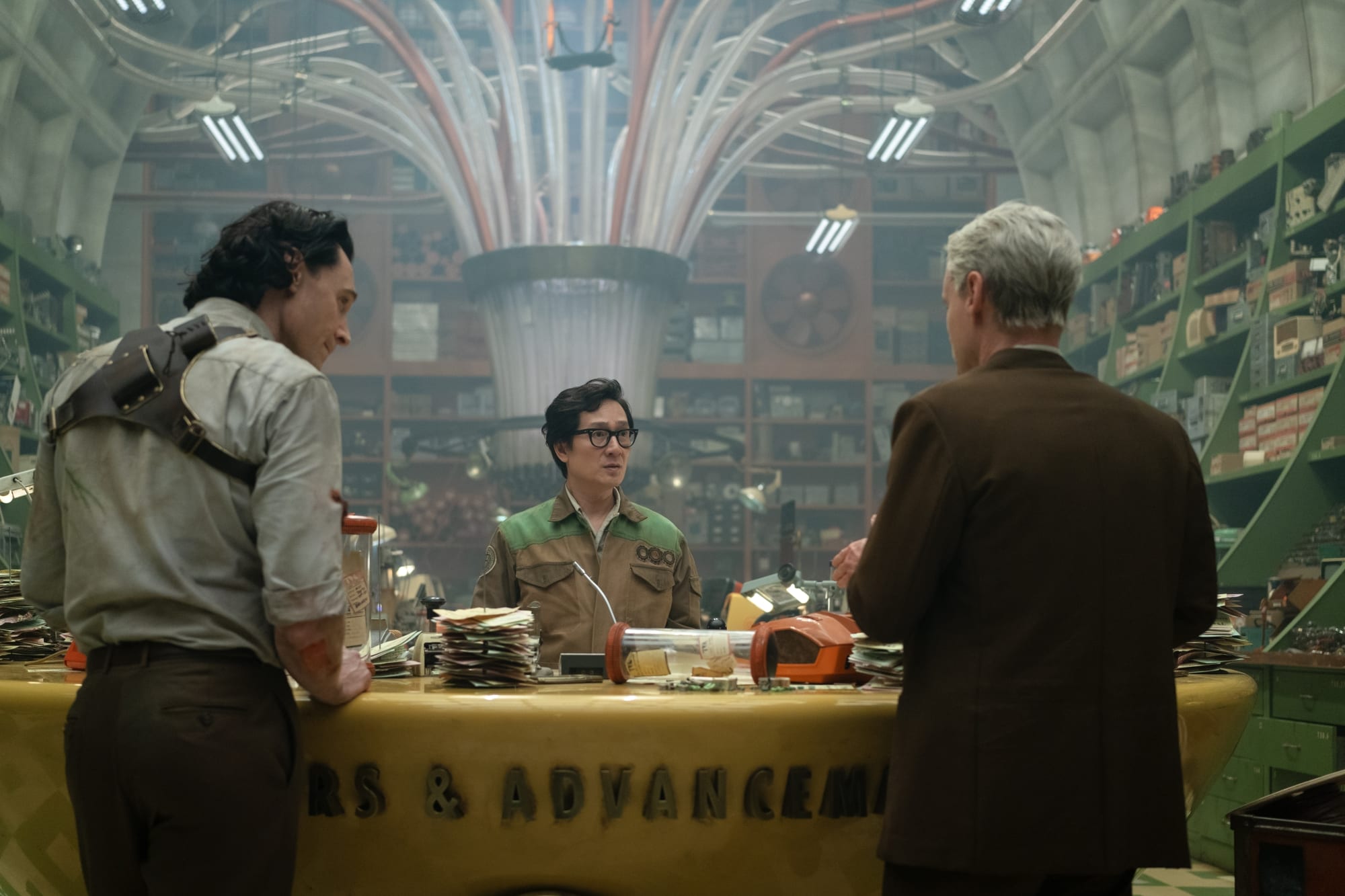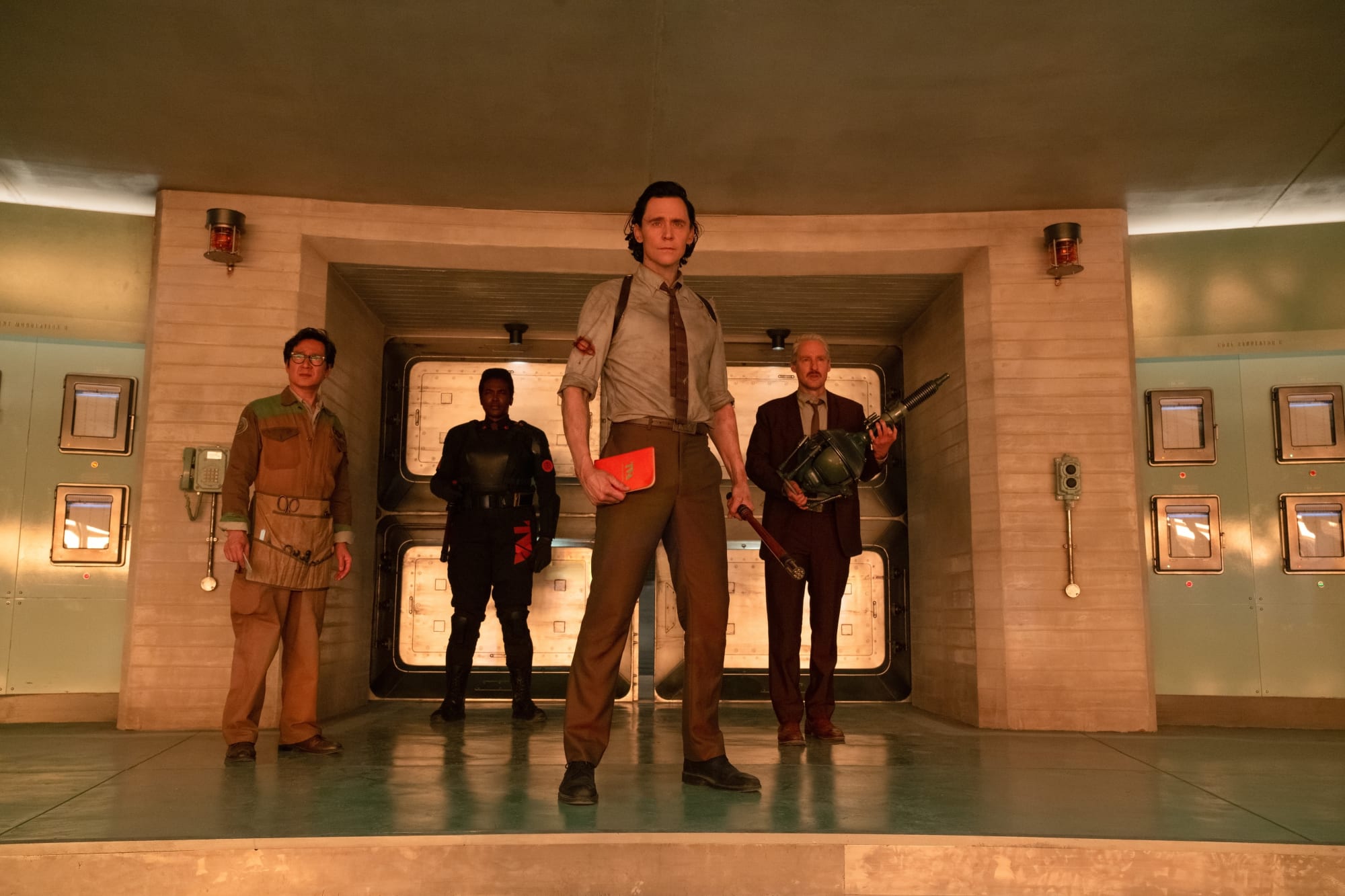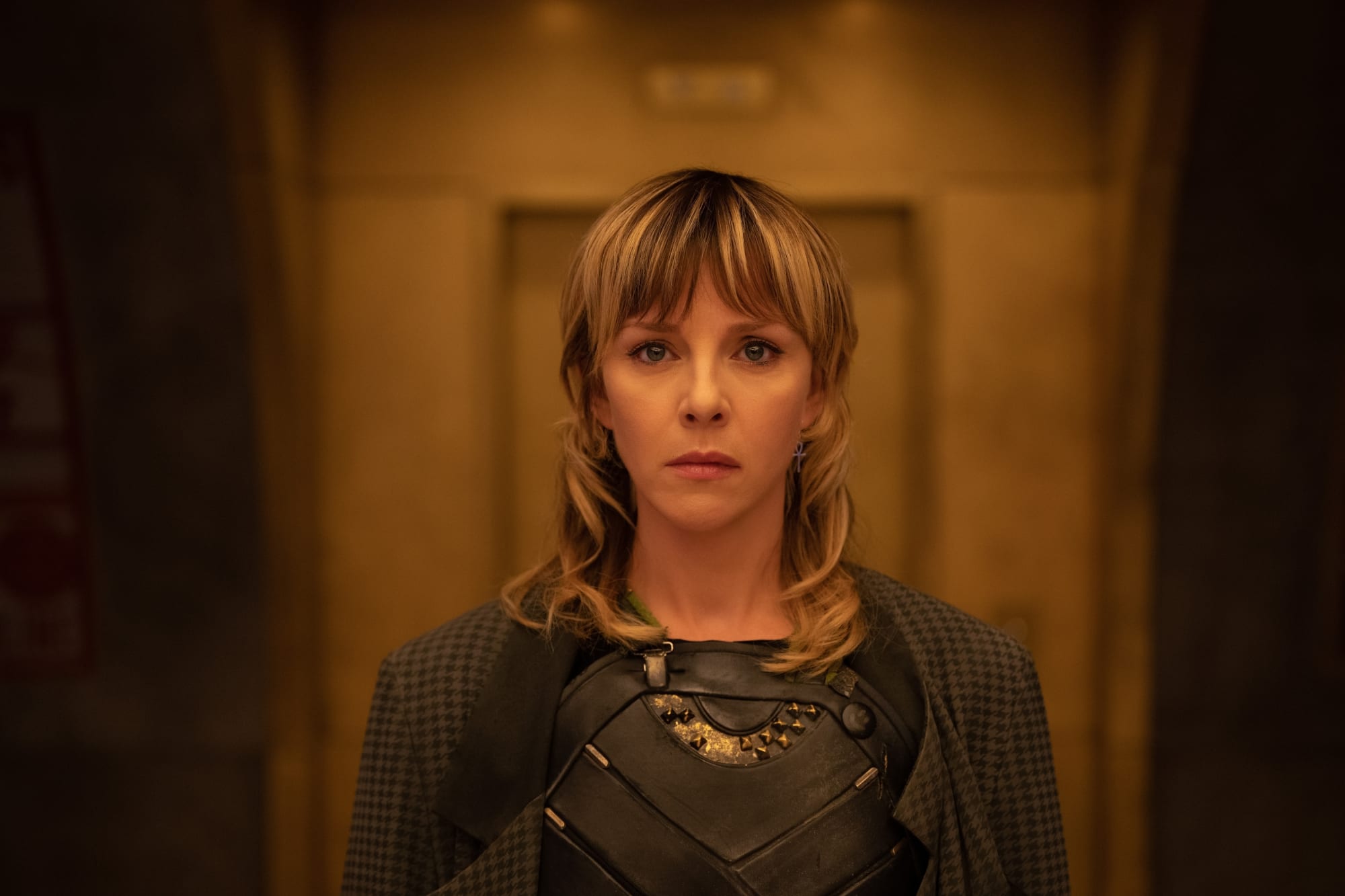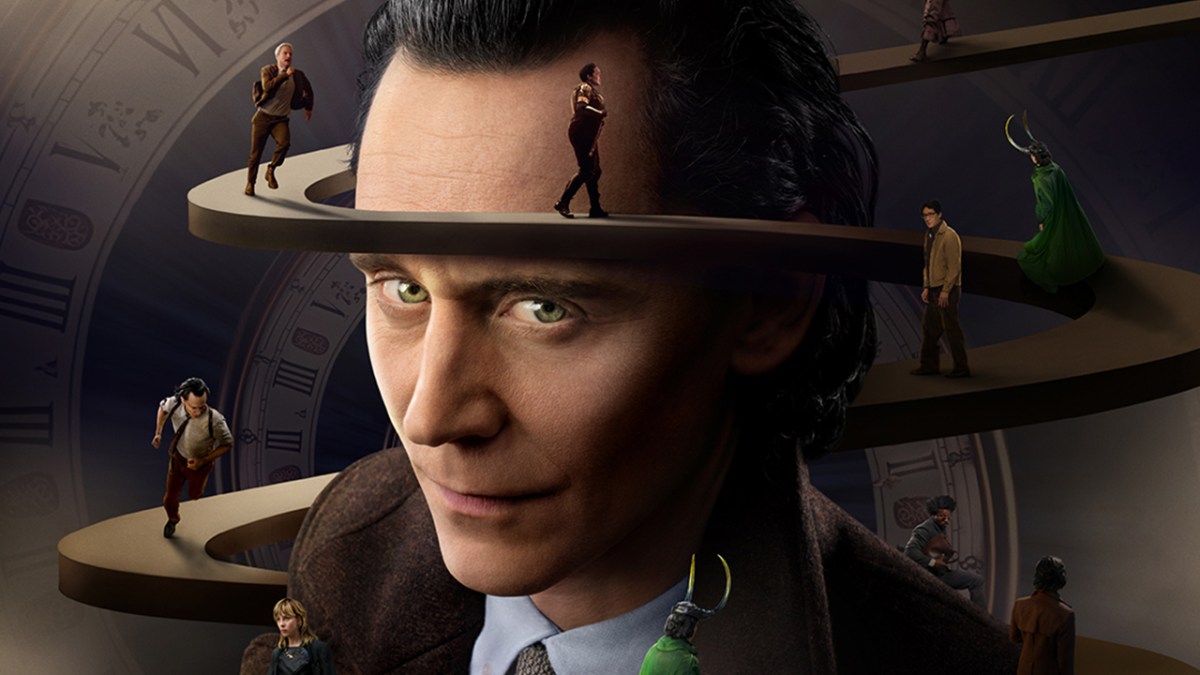Editor’s Note: The following review of Disney+’s Loki Season 2 does not contain any major spoilers for the Marvel Cinematic Universe (MCU) series, so continue on safe in that knowledge, spoiler-adverse readers!
Second seasons are tricky things. There is a reason that critics and fans talk about “the sophomore slump.” First seasons are often carefully and meticulously planned. Particularly in the modern streaming age, they tend to be produced in a vacuum. Writers and directors guide a project from conception to completion before anybody lays an eye on it. It begins at a point chosen by the creator and so its narrative trajectory can be easily charted.
The second season is tougher. It’s obviously informed by the first season, but in ways both planned and unplanned. There may have been elements of the initial run that didn’t work, and so need to be pruned. However, there may also be choices that clicked in unexpected ways, and so demand greater attention. In its second season, a streaming show is a living thing. It is an object in conversation with itself and its viewers. It’s frequently messy and sprawling, expanding in unpredictable ways.
It feels appropriate that Loki is the first of the MCU streaming shows to get a second season. As it stands, it is also the only live action show to have a second season announced. (Apparently, the animated shows What If…? and Spider-Man: Freshman Year will run multiple seasons.) While the streaming shows certainly feed into one another and serve as pipelines to the movies, the individual shows appear to be relatively self-contained.
Loki is an interesting candidate for a second season. WandaVision was a breakout streaming show, a cultural juggernaut that was firmly in conversation with the conventions of television. However, Loki performed remarkably well. According to SambaTV, its premiere significantly outperformed any other Marvel streaming show. The week of its first-season finale, Neilsen recorded that Loki received over 1 billion minutes of views, placing ahead of 924 million minutes recorded by WandaVision in its final week.
Like WandaVision, the second season of Loki is in conversation with its format. Picking up immediately following the first season finale, Loki finds the walls of reality crumbling. “The Sacred Timeline” is fracturing and shredding. Canon is becoming undone. The grand plan is unraveling. While the first season was revealed to be the grand scheme of He Who Remains (Jonathan Majors), the architect at the end of time, the second season reveals that nobody is at the wheel.

In many ways, the second season of Loki feels like a show about second seasons. Perhaps appropriately given the themes of the season, Loki finds itself without the involvement of head writer Michael Waldron and head director Kate Herron. Instead, Eric Martin has stepped into the head writer role while Justin Benson and Aaron Moorhead take over the mantle of head directors. This perhaps informs the general vibe of the season.
Of course, pre-season reviews tend to avoid delving too deeply into plot to avoid any potential spoilers. However, in the broadest possible terms, the second season of Loki is a story about the surviving representatives of the Time Variance Authority (the TVA) – Loki (Tom Hiddleston), Mobius (Owen Wilson), Hunter (Wunmi Mosaku), Casey (Eugene Cordero), and new cast member O.B. (Ke Huy Quan) – desperately trying to deal with the mess that they have inherited.
It is a clever and self-aware twist. It also allows Loki to get away with the indulgences of these sorts of seasons. With time beginning to fray, there is plenty of room for “branched timelines” and narrative tangents. Granted their freedom, characters like Loki’s variant Sylvie (Sophia Di Martino) are free to escape into strange and seemingly dead-end tangents for no other reason than to let the rest of the story catch up to them. The show’s central conceit makes this messiness a feature, rather than a bug. It’s deft scripting.
Of course, there is a certain unevenness to all of this. In the four episodes screened for critics, the second season of Loki lacks the tight focus of the show’s first year. There are a lot of balls in the air, often moving in multiple directions, and it’s not always clear that these are going to neatly align for the finale. The show’s thematic emphasis on freedom and chaos can occasionally feel like a clever excuse for this narrative looseness.
Again, this gets at the challenges of reviewing a show like Loki based on four of six episodes. These four episodes are certainly among the strongest opening four episodes of any of these streaming shows, but that enthusiasm must be tempered by the reality that even the best of these shows have self-sabotaged in their final stretch. These four episodes effectively comprise the first two of the season’s three acts, and so much of how this works out depends whether this can be paid off.
Related: Best Loki Stories in Marvel Comics History

Related to this point, there is also a sense in which the show’s title character gets a bit lost in all of this. Loki is one of the most compelling characters in the larger shared universe, and Hiddleston remains one of the most compelling screen presences. However, while the first season gave the character a clear arc – confronting his own history of failure and his tendency to self-sabotage – the second season doesn’t seem to have as clear a read on who Loki is or what he wants.
Of course, there is still plenty of Loki. Characters still monologue about the character’s villainy, and Loki himself will occasionally drop in some heavy-handed references to the events of The Avengers. However, the second season of Loki never figures out what Loki himself actually wants out of any of this. It doesn’t help that the season is structured to keep Loki and Sylvie separated from extended stretches, removing its central engine for character conflict.
Loki is also occasionally a little too broad. Disney has seemingly made the decision not to recast Jonathan Majors, despite the outstanding accusations against him. Setting those aside, Majors is a talented performer and it’s easy to understand what drew him to the role of Kang, who will manifest as multiple variants across the shared universe. It’s a role designed to showcase range and variety. However, Majors’ work here feels too much like a collection of tics in search of a character.
Still, there is a lot to like in the second season of Loki. Allowing for a spectacularly ill-judged season finale that undermined a lot of what came before, the first season of Loki remains the most interesting of Marvel’s streaming shows. It feels the most playful and absurd of the set, the one that most enthusiastically embraced the absurdity and the potential of comic book storytelling. At its most basic, Loki is a debate on that most comic book of concepts: the idea of the canon.
To be fair, Loki is far from the most ambitious or experimental comic book adaptations out there. It’s certainly less absurdist than something like Noah Hawley’s Legion and less formally adventurous than the Spider-Verse movies. However, within the relatively restrained house style of the MCU, Loki demonstrates a commendable willingness to be its own thing. With its playful time-travel cartoon logic, Loki feels like a precursor of Disney+’s acquisition of the international rights for Doctor Who.

In its second season, Loki remains the best looking of these streaming shows in terms of simple production. A large part of this is down to production designer Kasra Farahani, costume designer Christine Wada, and set decorator Claudia Bonfe. The retro-futurist bureaucracy of the TVA is effectively and unsettlingly surrealist, and it helps Loki to pop in a way that Marvel Studios productions don’t always get to.
While not as liberated as Legion or the Spider-Verse films, there is an affection for the conventions of comic book storytelling in Loki. This is reflected in its narrative, populated with branching alternate universes and infinite “variants” across the multiverse. However, it is also occasionally reflected in its visual storytelling. At points in the season, especially the premiere, conversations take place in the same space across time, recalling a classic comic book formalist convention.
More to the point, Loki remains a show with big ideas. It is undeniably pulpy and silly — and, to be frank, more consistently fun than any of the other MCU streaming projects. However, it is also a show that can throw in casual references to the “Less is Enough” philosophy of architect Pier Vittorio Aureli, whose critiques of the intersection of modernism, monasticism, and capitalism suggest a central theme for this ambitious second season.
In both of its seasons, Loki is a show that is fundamentally about systems and cycles. It uses its time travel framework to explore that idea, and reinforces it through its brutalist and modernist aesthetic. Although the show never gets quite as wacky and convoluted as its time-warped setting would allow, the second season plays with devices like paradoxes and loops in a way that gets at these interesting concepts. These systems and structures are ultimately designed to be self-perpetuating and self-maintaining.
To a certain extent, it can feel like Loki is being carried more by ideas woven into its production – reflected in the show’s production design, costuming, performances, and location work – than articulated through the scripts. At times, the show is haunted by a lingering worry that its complexity and wit is just a skin-deep affectation layered on top of a much more conventional and generic narrative framework.
Then again, perhaps there’s something fitting in that uncertainty and ambiguity. Loki was always a god of mischief, and illusion was always his most effective weapon.
If you’re looking for more on the series, check out how many episodes Disney+’s Loki season 2 will have and when they release.






Published: Oct 3, 2023 09:00 am